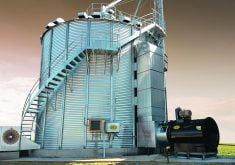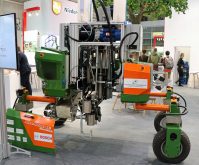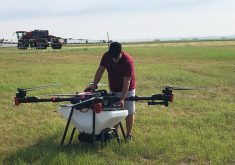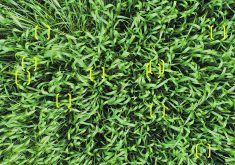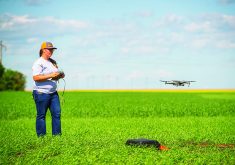Students who enrol in the program will learn how to precisely manage crops to increase sustainability and production
A new university certificate program, the first in Western Canada, seeks to train students from diverse areas of expertise and backgrounds in precision agriculture.
“I think agriculture is rife with opportunities for problem solving,” said Angela Bedard-Haughn, dean of the College of Agriculture and Bioresources at the University of Saskatchewan. “I think it’s that ability to use the rich breadth and depth of the data that’s automatically being collected now across so many platforms, and to bring that together and use it as part of the decision-making toolkit.”
Read Also

New coal mine proposal met with old concerns
A smaller version of the previously rejected Grassy Mountain coal mine project in Crowsnest Pass is back on the table, and the Livingstone Landowners Group continues to voice concerns about the environmental risks.
The university plans to offer a certificate in precision agriculture meant to bring together a wide range of students, said Bedard-Haughn. They include everyone from students interested in the business aspects of agriculture, and engineering students focused on technology, to computer science students who want to explore things such as machine learning and agriculture, she said.
The certificate is meant to complement existing degree programs and can be taken concurrently. Students will learn how to precisely manage crops to increase sustainability and production, said a statement by the university.
The program will include knowledge of technologies such as satellite imagery, global positioning and information systems, big data, yield mapping, and management zones to better understand what drives crop yields from year to year, it said.
Bedard-Haughn said the goal is to train people from different disciplines who not only will be able to use existing tools to solve problems, but who can also contribute to the development of precision agriculture, “so helping address the challenges as they come up or looking at new opportunities for applying this technology.”
It will help prepare students for careers focusing on precision agriculture ranging from agronomists to programmers and data analysts, said the university statement. Other careers include engineering machinery and control design, along with sales and marketing specialists, it said.
The certificate grew out of discussions with people ranging from researchers to industry partners.
“Industry partners were saying, ‘hey, we need students’… and certainly in the shaping and design of this, we had workshops with folks from some of the leading companies based in Western Canada that are doing this type of work so that we could, in designing a program, we would be meeting their needs.”
Due to the fact it is a certificate program, students could potentially complete it in a minimum of two years compared to four years for an undergraduate degree, said Bedard-Haughn. They are required to earn 18 credits divided among six courses, she said.
Three of the courses are mandatory, including a course that will introduce precision agriculture. Students must also take a geographic information systems course, as well as a capstone course that involves working together on projects that will tackle some of the problems faced by the industry.
The remaining three courses can be chosen from a range of electives, some of which students may have already taken, said Bedard-Haughn. “There’s probably 30 or 40 courses that students could choose from among the different colleges that would be useful for them to help round out their programs.”
Although the certificate program will be housed in the College of Agriculture and Bioresources, it will also include students from the Department of Computer Science and the College of Engineering, said the university statement.
The first cohort of students is slated to begin classes in September 2023, it said.







